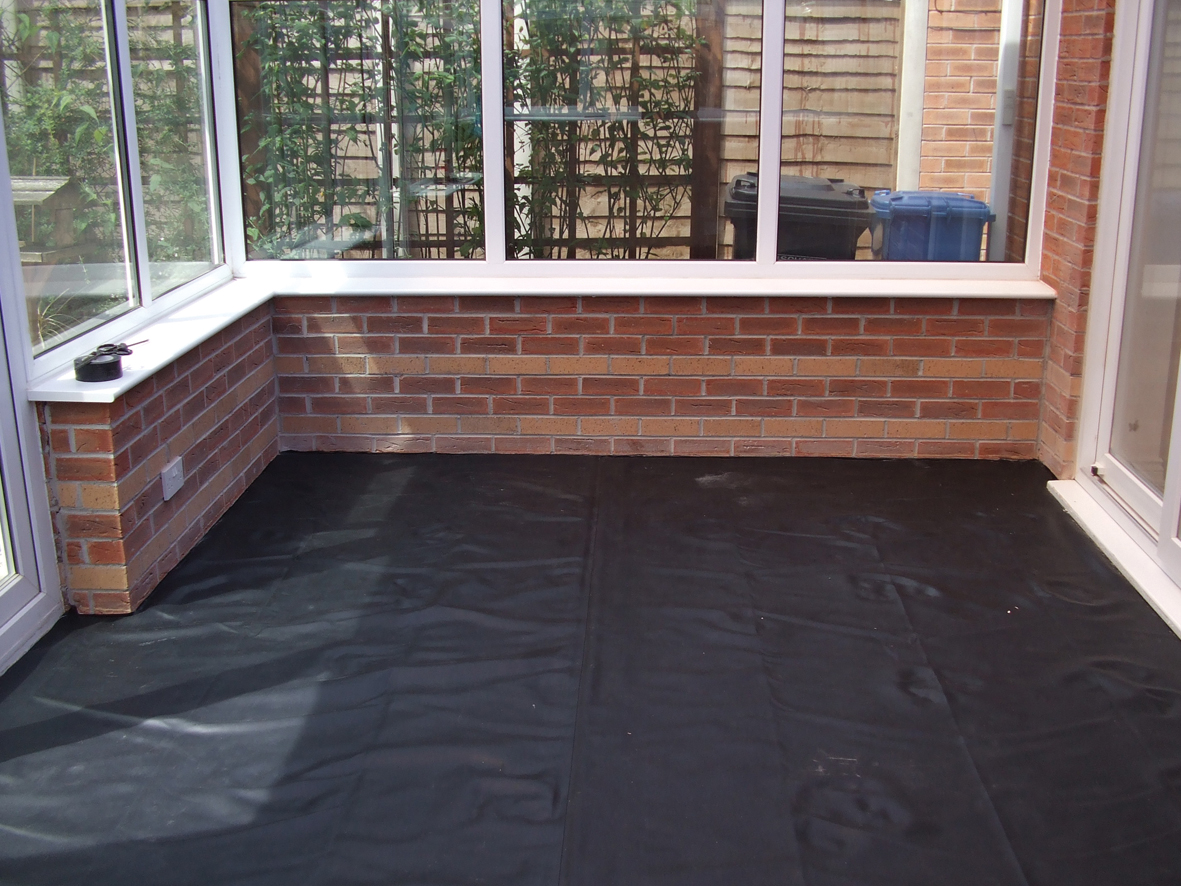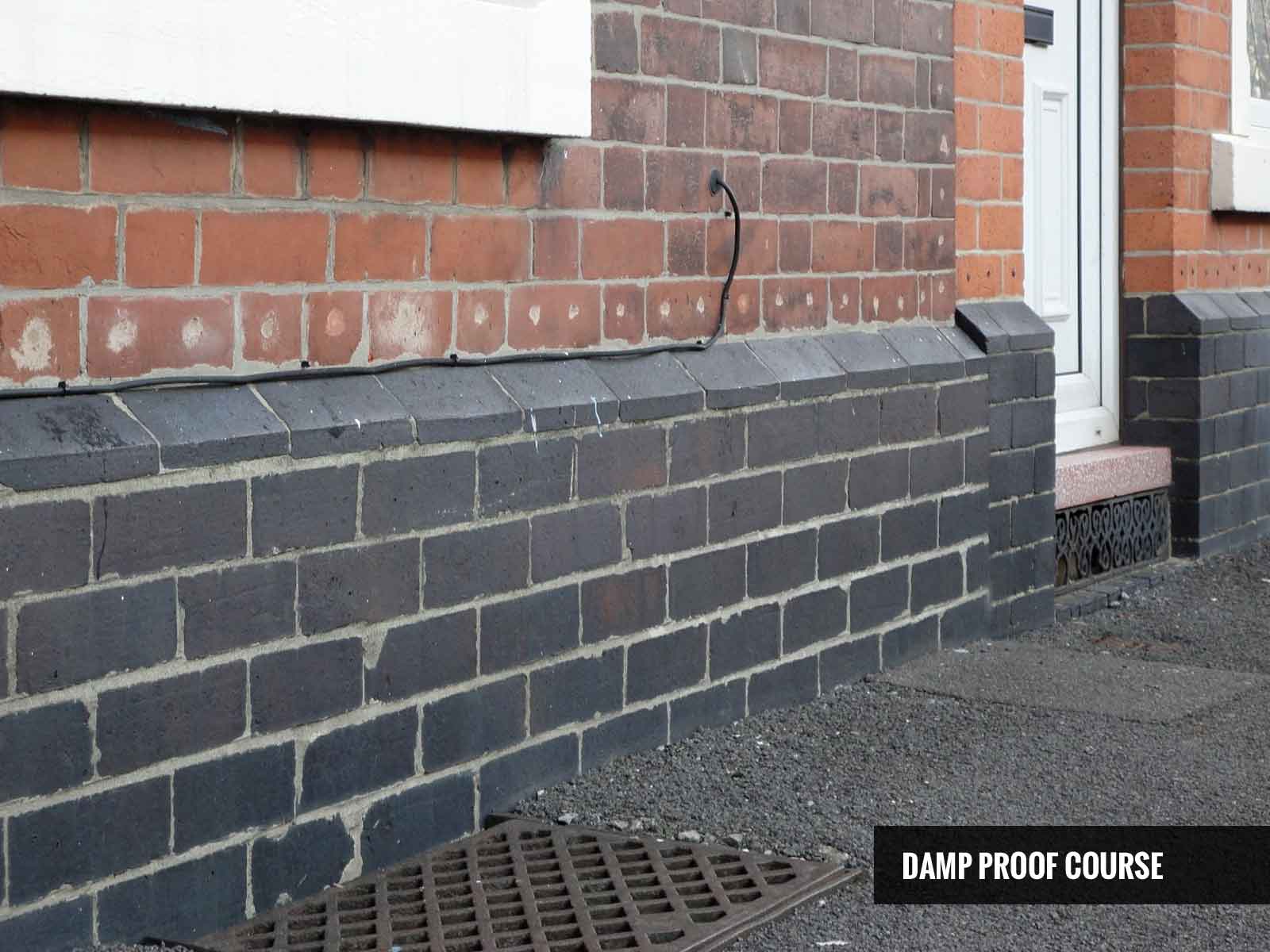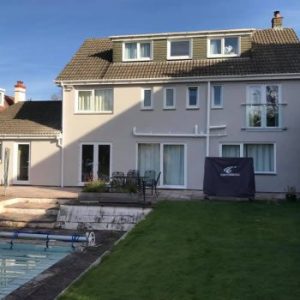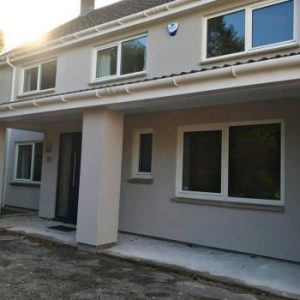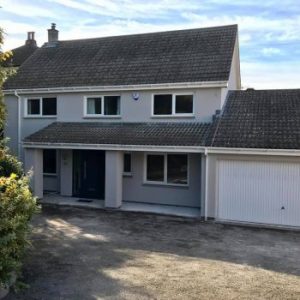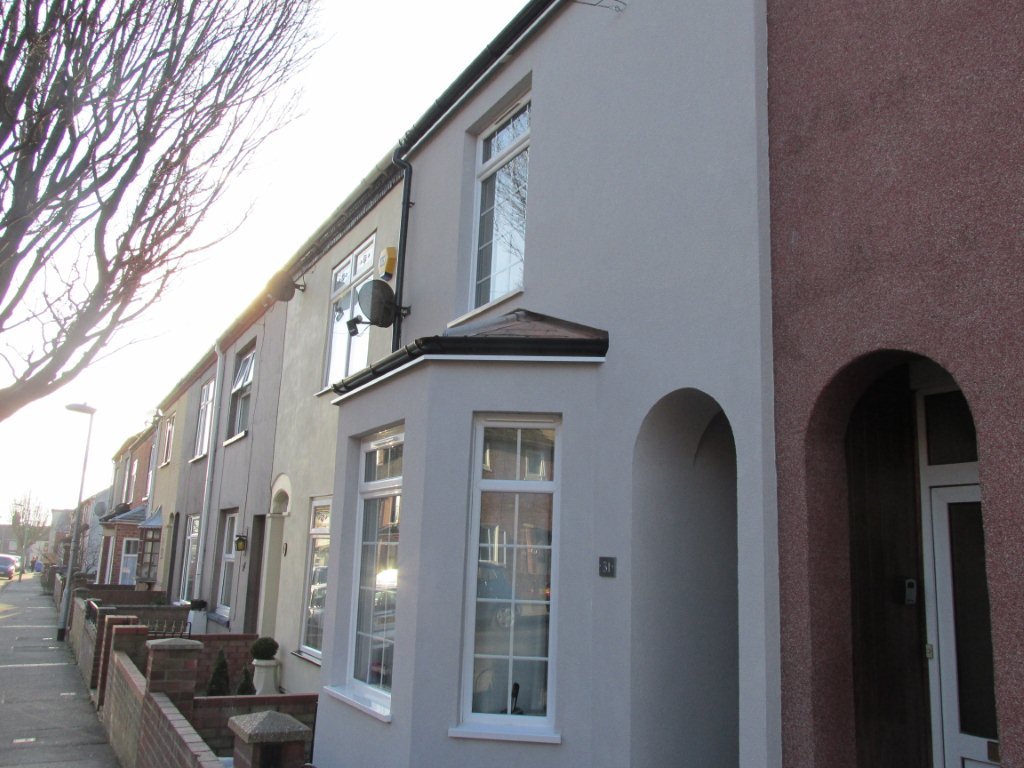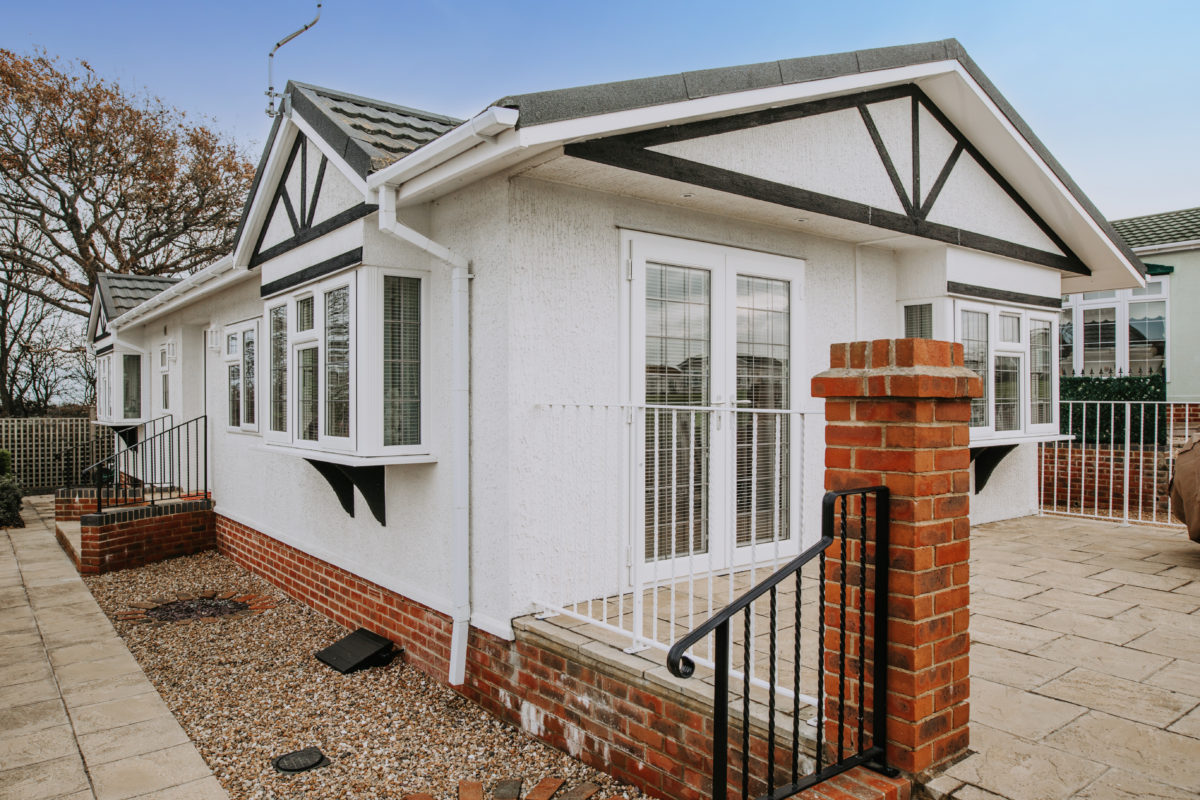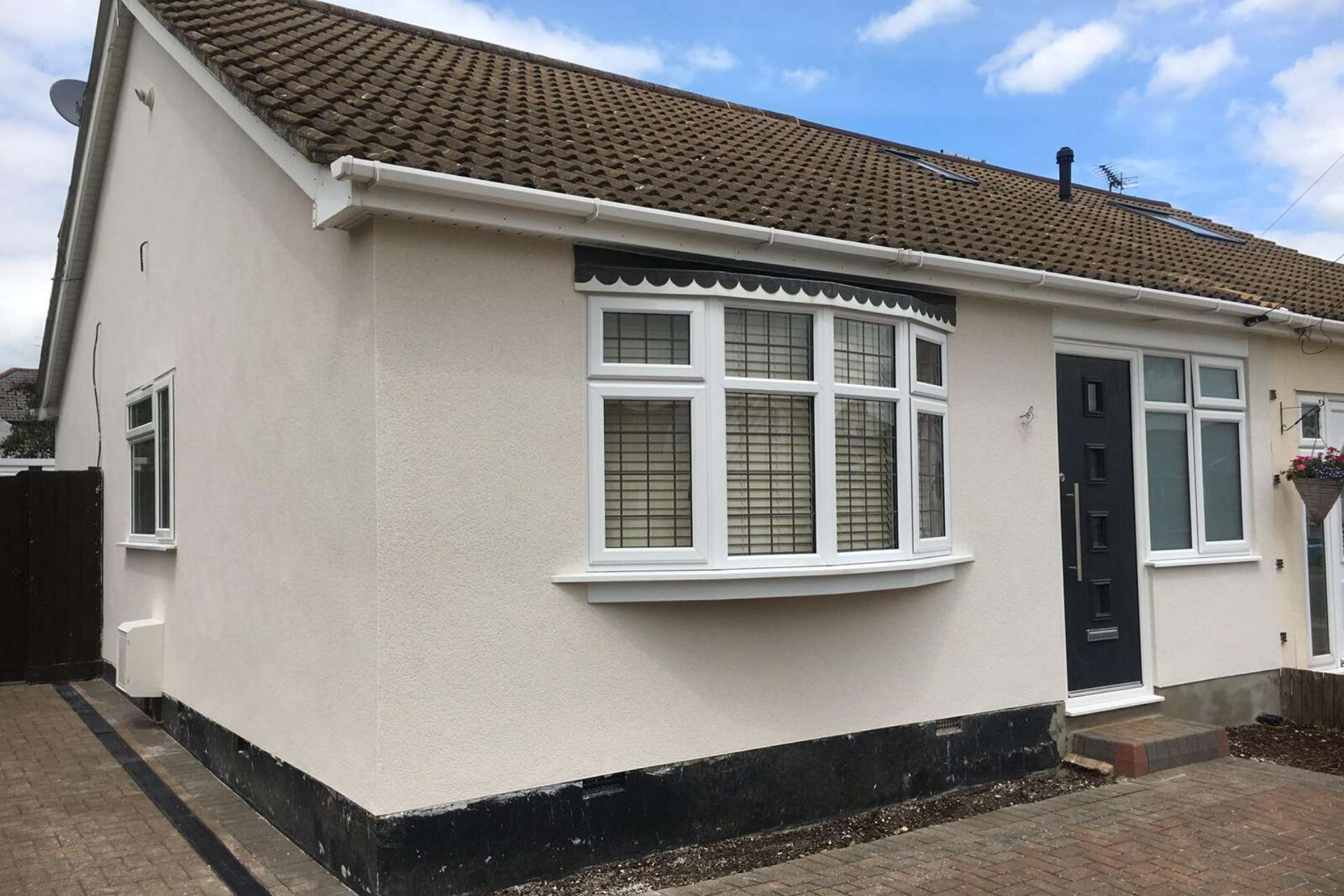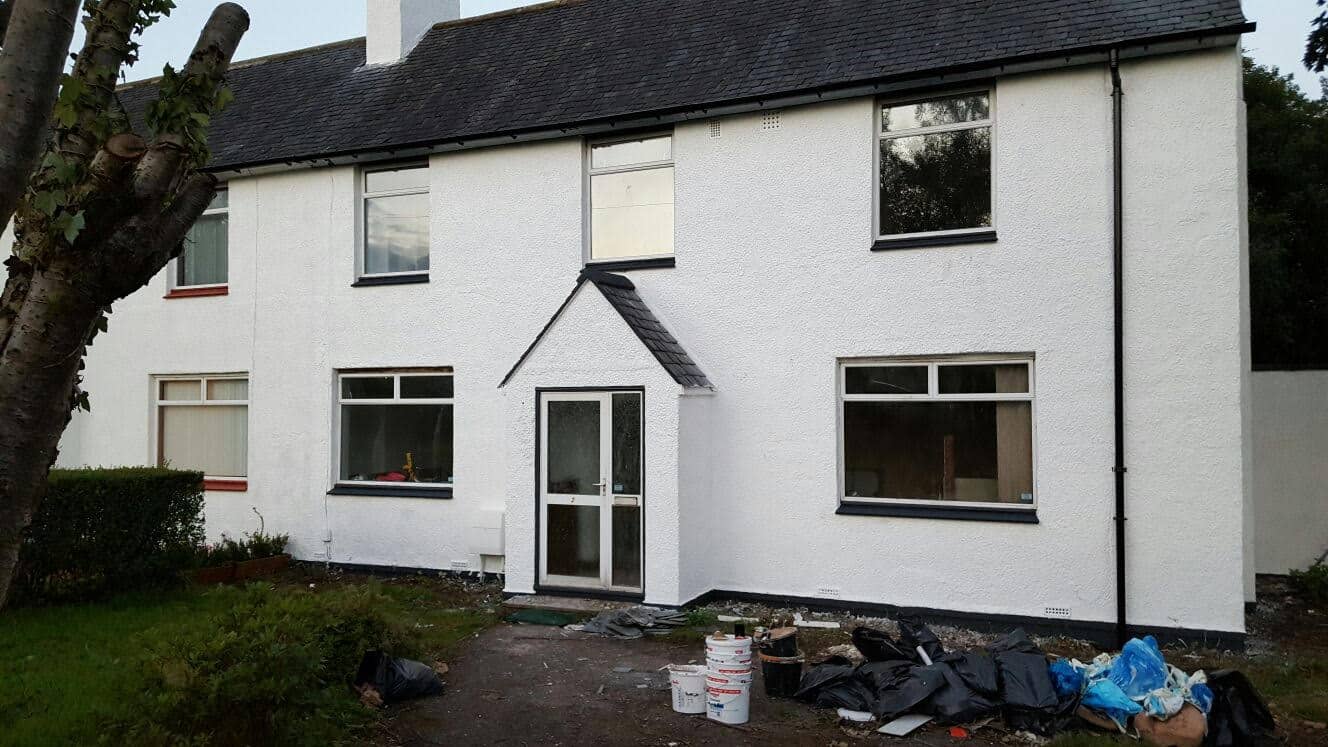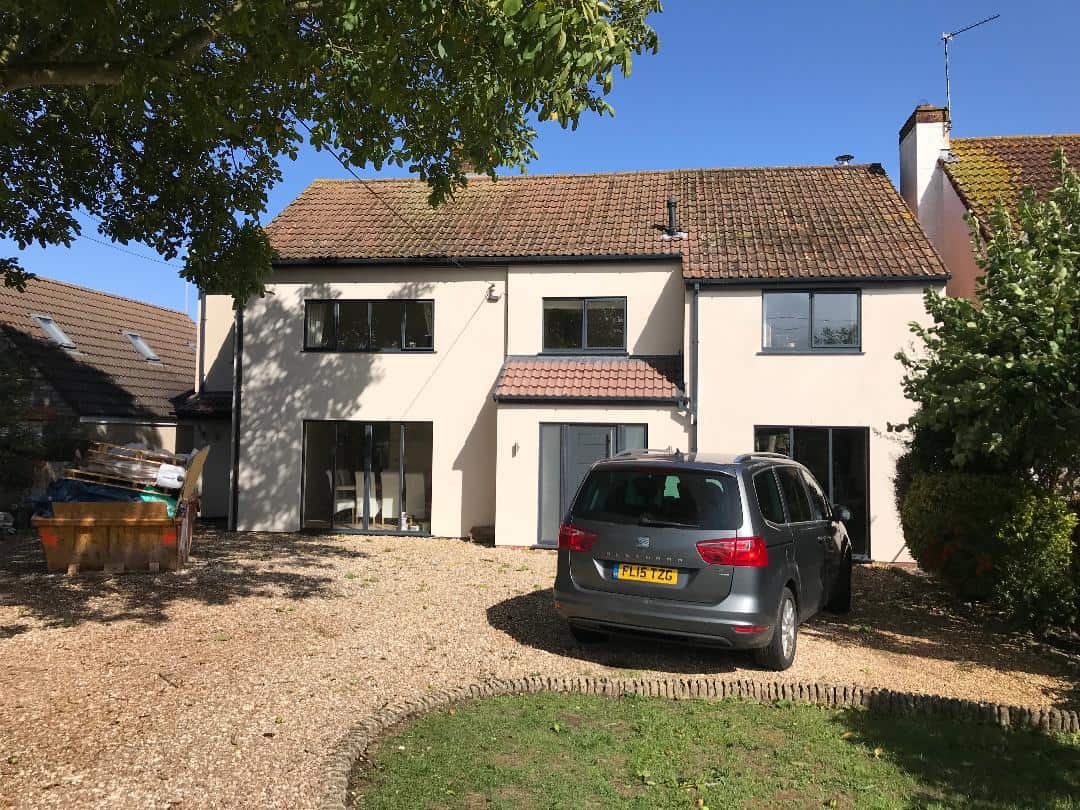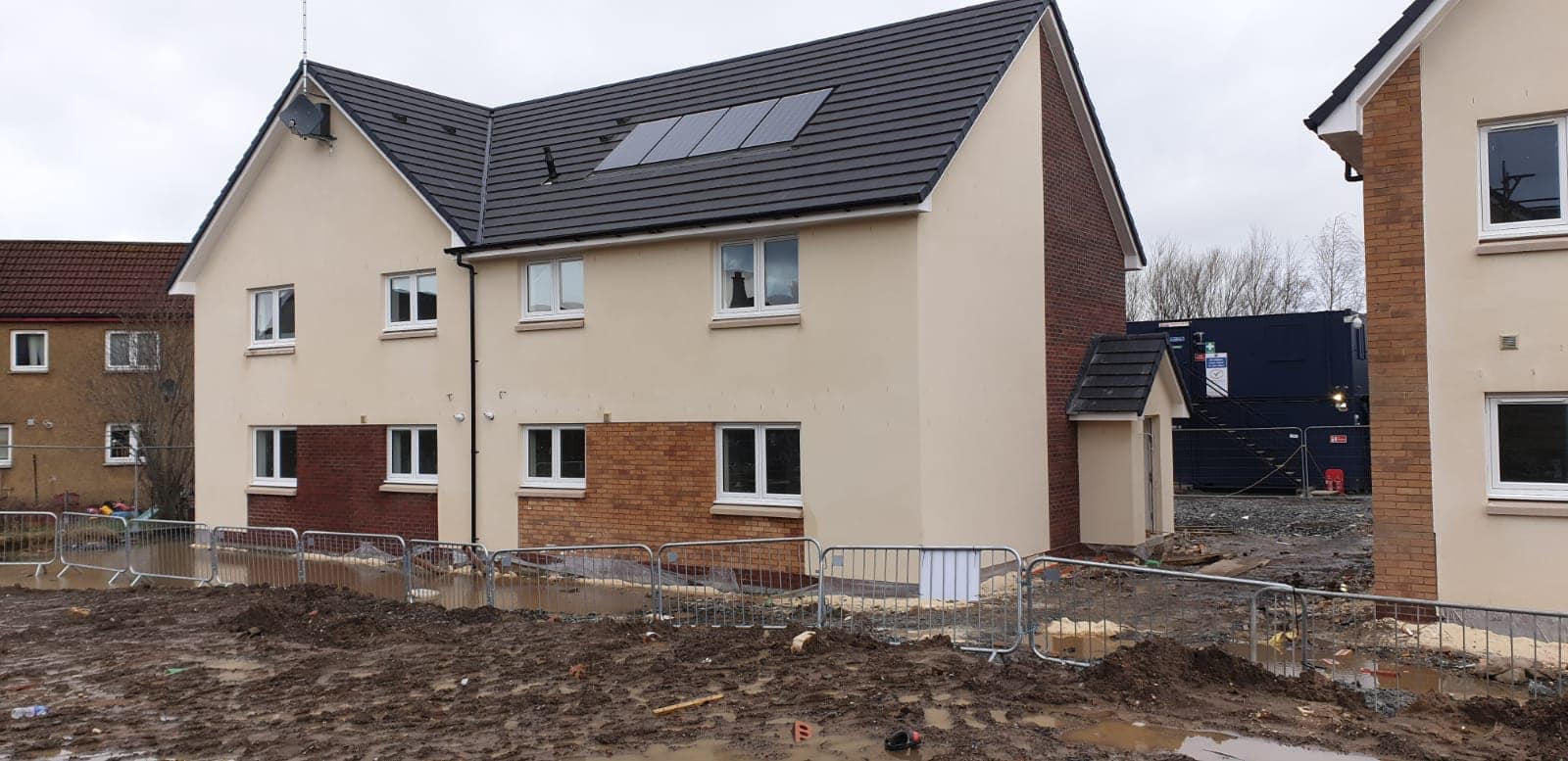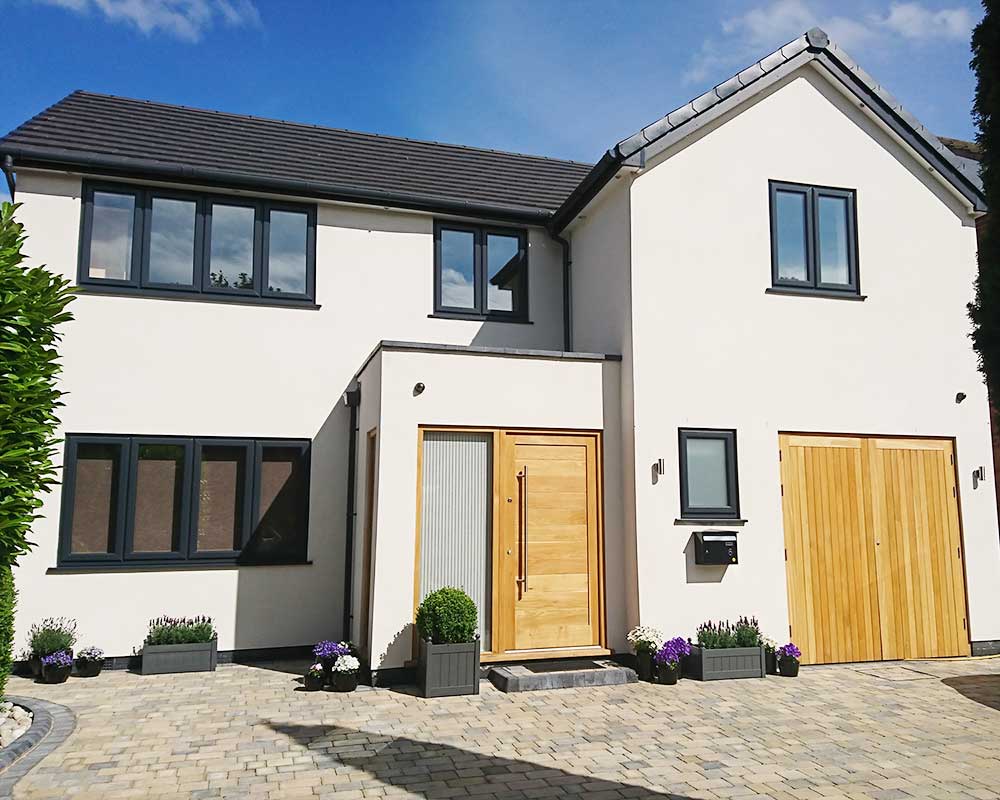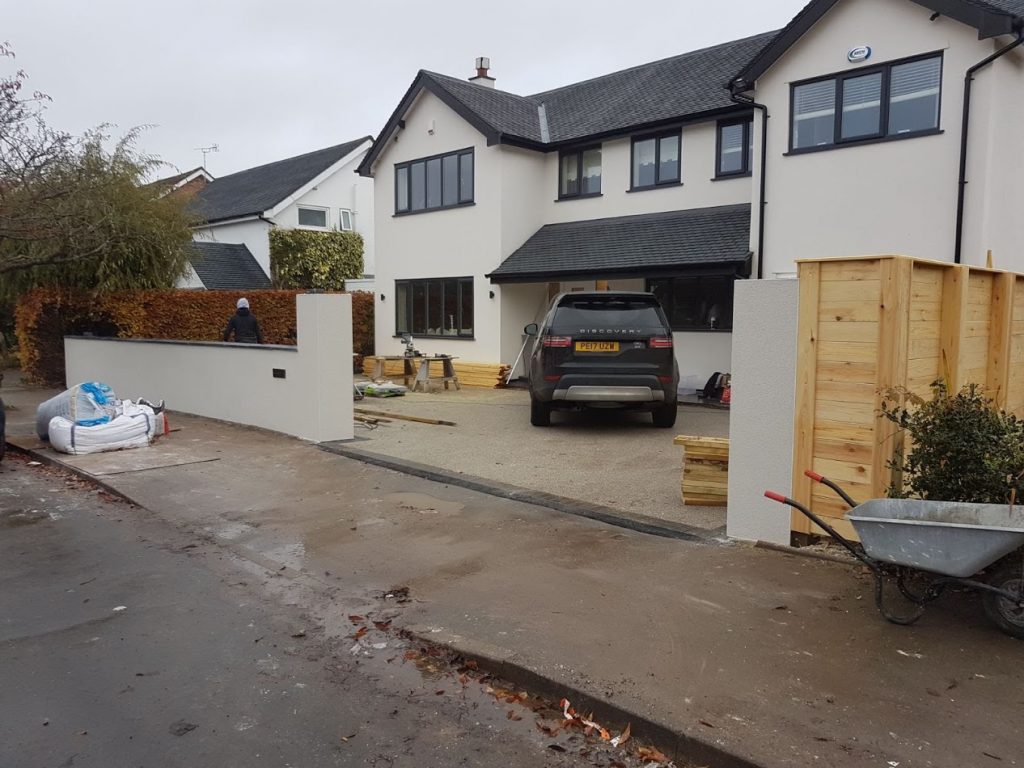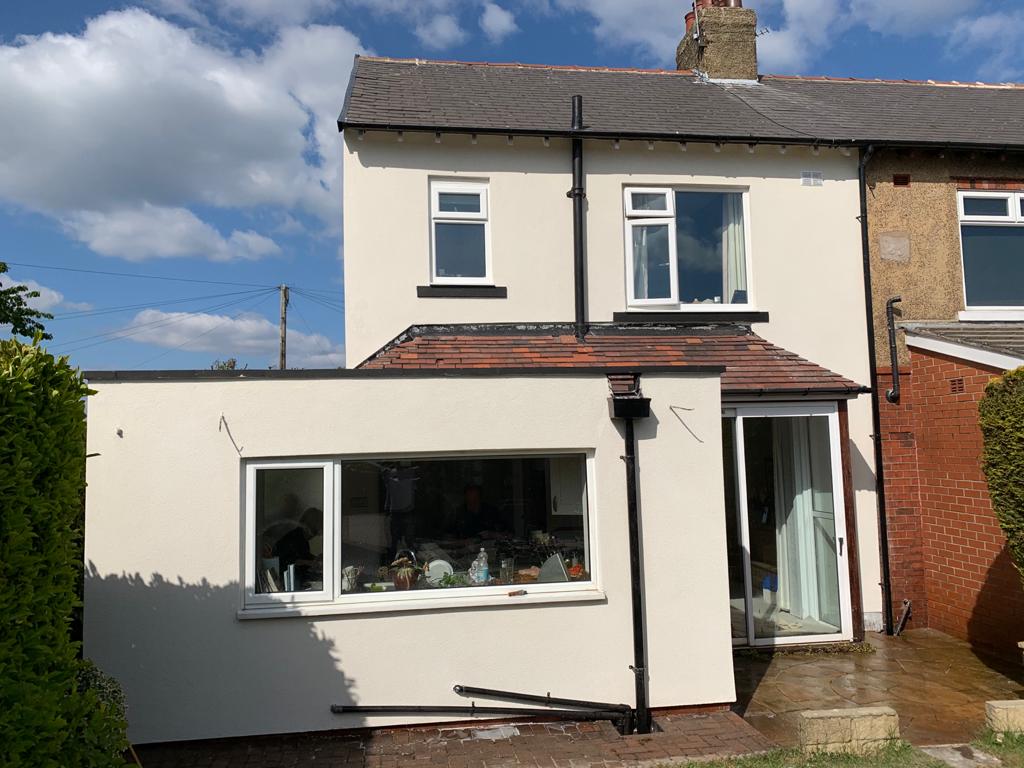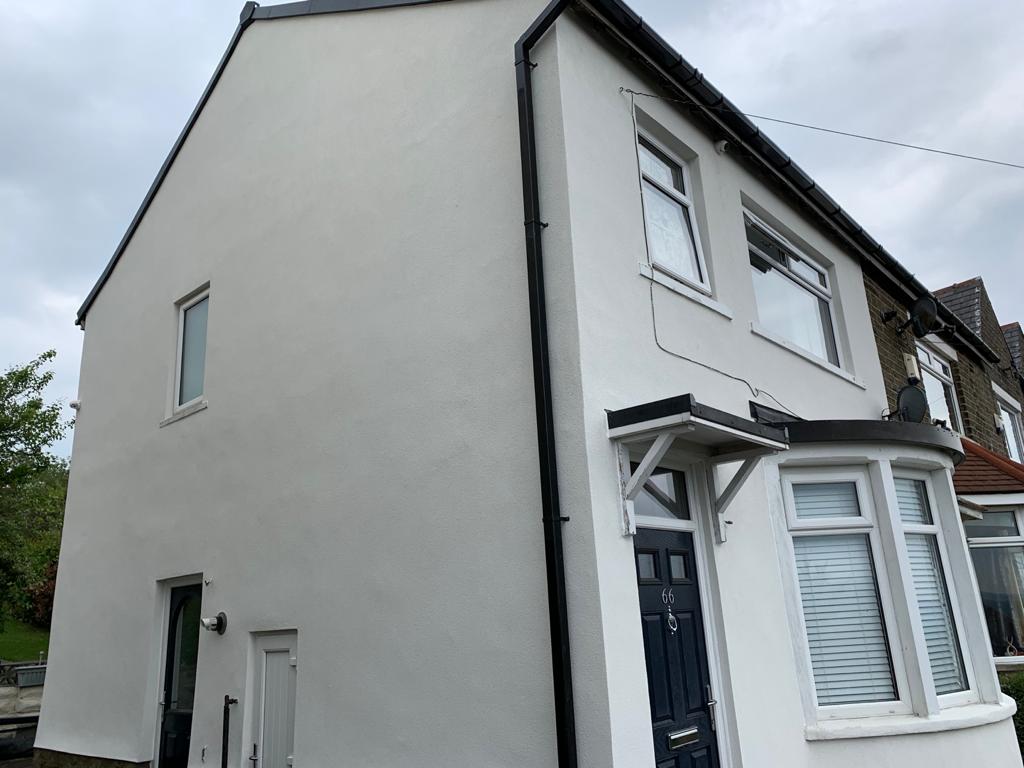Sand and Cement Rendering South Yorkshire
Sand & Cement rendering in South Yorkshire has been the favored material of choice for decades when it comes down to render, this is the material that many houses in the UK are currently coated in but times are rapidly changing.

Unlike other renders, once the material has dried, it will then need painting, because of this, we always recommend considering the coloured render route as even though Sand & Cement render is a cheaper alternative; when you factor in labor costs for painting and overall predicted lifespan, the overall cost is very similar and the overall process is slightly longer than its coloured counterparts.
Benefits Of A Traditional Sand And Cement Render
• Very Durable Once Set
• The Relatively Slow Set Time Means It Can Be Modified And Altered During And After Application.
• Can Set Underwater So It Is Suitable For Different Types Of Masonry And Weather Exposure.
• Allows For Moisture To Evaporate Which Prevents Salt And Frost From Damaging Masonry Work
How To Apply A Traditional Sand And Cement Render
The first coat of a sand and cement rendering in South Yorkshire is applied two or more times. It consists of a mixture of 1 part cement to 5 parts plastering sand. This coat is applied to the substrate to a nominal thickness of 9mm to 16mm. Once applied the coat is left for between 2 and 7 days to set. The time taken varies dependent on the season. With the setting period being smaller in the summer and longer in the winter.
The next layer of a traditional sand and cement layer is the middle coat. This is often referred to as the “butter coat”. In practice this coat is rarely used.
The final coat is a finishing coat. This coat consists of a mixture of 1 part cement to three parts sand. This coat is laid to a nominal thickness of between 3mm and 9mm.
Contact South Yorkshire Rendering Network




